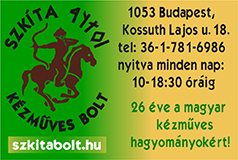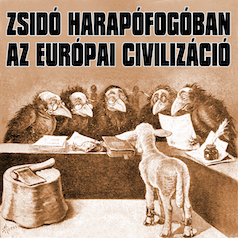Dear Facebook Team,
My name is Krisztina MORVAI and I am a Hungarian member of the European Parliament and its LIBE (Civil Rights, Justice and Home Affairs) Committee and an associate professor of law at the ELTE University Budapest, specializing in criminal law and human rights. Earlier I also worked at the European Court of Human Rights (Strasbourg) and I was a member of one of the main United Nation human rights bodies (CEDAW Committee) -among many other positions I held in the field of civil rights.
I am writing you in connection with the termination/closing down of the Facebook page of kuruc.info, a certainly "controversial" but popular news/current affairs resource in Hungary. As a human rights lawyer I am disappointed by this step and deeply worried by its potential consequences regarding the freedom of speech and opinion more generally and on the Internet and Facebook in particular. I don’t want to repeat here the usual „law school textbook arguments” against interference with free speech. Nevertheless let me share with you some of my concerns:
1, In my view this decision of Facebook will be seen as a legitimization of restrictions on the access to the internet, on the basis of content, by several actors, such as (dictatorial) governments. They can, from now on, always refer to the legitimacy of banning the use of modern means of communication in case part of the content or the language is questionable, or considered dangerous by those who have the power to cut the communication channels. „If the so called democratic Western world can do it, why couldn’t we and shouldn’t we do it?”
2, The kuruc.info Facebook page was visited/followed by 72 thousand people. The vast majority of these people were individuals who collected and shared their information about current affairs in Hungary and in the world from a variety of sources, one of them being kuruc.info. As "able-minded" individuals they read, evaluated and analysed these information and made their own conclusions. This is what the fundamental right to information and to freedom of thought and opinion is supposed to be about. I believe that the ”infantilization” of 72 thousand people -who are considered to be unable to make good judgments as adults – is unnecessary and unjustified and disproportionate to the aim to be achieved (i.e. silencing hate speech).
3. Kuruc.info has been covering a wide range of subject matters that are of interest and concern to many people. Even though some language and some articles might be „shocking” for some people several others are not and they perfectly match other critical websites/pages across the world. I myself often visit kuruc.info – skip the articles I don’t like and read others that I find interesting and informative. Just like other adult people tend to do. There are a lot of important issues that are covered and analyzed by kuruc.info and not by other sources of information in Hungary. Just yesterday I watched on the website of kuruc.info the court trial of a human rights activist from the Ujgur territory of China who was unlawfully extradited from Hungary – obviously upon Chinese „instructions” given to the Hungarian government. The documentary about the case and the court trial was not covered by any other sources but kuruc.info. I wish it was shared by many many people across the world. Another example is my own work as a human rights and women’s rights lawyer that is often covered by kuruc.info and not by any other sources. Most of my speeches at the Femm (women’s rights) committee of the European Parliament on issues like violence against women, trafficking in women and discrimination against women at the workplace are not „aired” elsewhere in Hungary but kuruc.info. I don’t think that all the editors are deeply committed women’s rights activists but they are certainly committed to freedom of access to information. Some of the other subjects that are regularly covered by kuruc.info include access to land by farmers, concerns about the environment; fight against corruption with case studies; follow up on the financial crisis and its effects on people; foreign affairs including for example the recent Wikileaks and Snowden affairs. On the whole: in contrast with the superficial judgment of those who pick up some elements from it kuruc.info is not a „single issue hate speech” source, but a meaningful source of information on critical current affairs. I believe that the banning of 72 thousand people from receiving and sharing such information is absolutely contrary to the principles and the philosophy of Facebook and, again, disproportionate to the aim it means to achieve.
4. The aim of silencing hate speech cannot be achieved by this ban. On the contrary, anti-semitism is on the rise due to the fact that ”some Jewish organizations are so powerful that they can always achieve whatever they want”.
5. Following the ban on the original site visitors started to immediately build up a new page which was immediately banned, too, without clear proof of its forthcoming content and language. This decision by Facebook is particularly controversial for those of us who believe in and fight for free speech and who consider Facebook one of the symbols of free speech in our times.
6. Being on holiday I had no opportunity to do deep research but I looked into the literature on censorship on the Internet/Facebook a little bit. Below I share with you two sources that outline those concerns that, in my view, are not ended but grew following the „kuruc.info case” that can have dire consequences for the future of freedom globally.
Päivikki Karhula in her article, Internet censorship takes new forms points out:
Censorship is no more limited to publications, books or articles or specific hot issues and totalitarian countries. Control on the internet has become a global, networked and multi-stakeholder effort which enables a third party involvement in data flows and communications. And ubiquitous environment with its hidden data collection and management practices makes it even less transparent (Karhula, 2008).
Cyberspace has also become colonized by powerful actors and by competing geopolitical and commercial interests. (…)
A recent UNESCO report argued:
Over the first decade of the 21st century, the Internet and its convergence with mobile
communications has enabled greater access to information and communication
resources. In 2010, nearly 2 billion people worldwide – over one quarter of the world’s
population – use the Internet. However, during the same period, defenders of digital rights
have raised growing concerns over how legal and regulatory trends might be constraining
online freedom of expression. Anecdotal accounts of the arrests of bloggers, filtering of
content and the disconnection of users have sparked these concerns. However, they are
reinforced by more systematic studies that provide empirical evidence of encroachments
on freedom of expression, such as through the increased use of content filtering.
Let me point out again: if Facebook, the good friend and supporter of free speech, itself, engage in the above criticized practices it is no surprise if enemies of free speech and freedom of opinion will engage in them without the slightest embarrassment. Now they have a direction to point their fingers to.
On the basis of the reasons outlined above –and of course on the basis of all further arguments for the outstanding value of free speech and opinion that are not introduced here – I would like to ask the Facebook team to kindly reconsider your earlier decision(s) and authorize the re-introduction of the original or at least a new Facebook page for/by kuruc.info.
Thank you very much for your consideration. I would be most grateful if you would reply to this letter.
Yours sincerely
Krisztina MORVAI JD; LL.M; PhD
Associate Professor of Law
Member of the European Parliament
Associate Professor of Law
Member of the European Parliament







